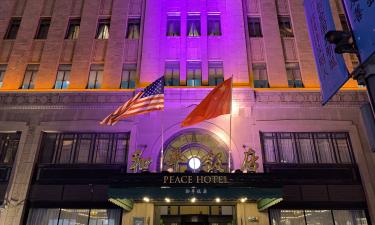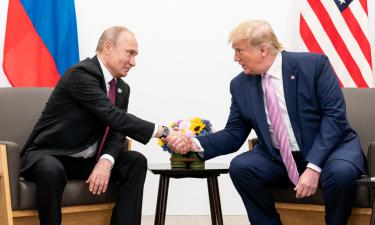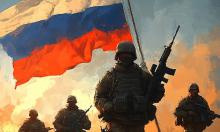The difficult return of trial by jury in Russia
The other day Russian lawyers quietly celebrated two important anniversaries: ten years since an experiment to launch trial by jury was introduced, and one year since jury trials began in Moscow.
Were the verdicts passed by juries fairer than the decisions of traditional courts? Russian human rights organisations and some members of the public are not sure. The predominant reaction to the results of the 10-year experiment is that jury trials in Russia are completely unpredictable and full of surprises for the prosecution and defence alike.
The answer to this riddle can be found in history, as is often the case. In introducing trial by jury, Russia entered the same river twice, as it is only reviving a forgotten judicial institution.
Jury trials were introduced as a result of the 1864 judicial reform following the decree of Emperor Alexander II that abolished serfdom. The country of relatively free people needed courts that would symbolise the freedom and equality of everyone before law. It came in the form of jury trials, though they differed considerably from their European counterparts.
In most European countries, such courts heard criminal and civil cases, while in Russia jury trials heard only serious criminal misdeeds. Besides, Russia never had British or US-style grand juries, which heard evidence to decide if the charged person should stand trial.
The innovation rapidly spread through Russia in the late 19th century. Twenty years after their introduction, jury trials served 75% of the population and embraced the entire population by the turn of the 20th century.
Western Europe could envy the efficiency of their Russian colleagues. A famous defence lawyer, Anatoly Koni, said in the mid-1880s, "Jury trials in Russia heard three times more cases than in France and four times more than in Austria."
So, when 600 judges started attending lessons on trial byjury and taking part in business games at the Russian Academy of Law ten years ago, trying to learn not just the letter but also the spirit of the new judicial institution, they were paying their due to the glorious past of pre-Soviet jurisprudence.
In 1994, jury trials started working in nine regions of Russia, quickly winning the fame of the most democratic instrument of justice concordant with the country's departure from totalitarianism.
However, strange things soon started happening. The jury members, whom many people wanted to see as unsophisticated, emotional and soft-hearted people, acted unpredictably. Several high-profile trials quickly dispelled the myth that the jury would always take the side of the Russian human rights organisations, which are frequently pro-Western.
Several such organisations monitored the case of Igor Sutyagin, a staff member of the Institute of the USA and Canada charged with spying for Western intelligence services. Despite solid proof that he secretly collected information that constituted state secrets and sold it abroad, attempts were made to present him as a victim of a spy mania.
Sutyagin, pinning his hopes on the liberalism of public assessors, demanded a jury trial. The defendant and his lawyers were in for a shock: the jury found him guilty and the court sentenced him to 15 years in prison.
Another relevant example is the case of Zarema Muzhakhoyeva, a would-be suicide bomber who was detained last summer while attempting to detonate a bomb ata restaurant in central Moscow. An officer who later tried to defuse the device died when it went off.
Muzhakhoyeva admitted her guilt and sincerely helped the investigators study the mechanism of preparing terrorist acts. Her defence lawyers presented a dramatic picture of a woman forced to become a terrorist, who refused to detonate the bomb at the last moment and presumably wanted to surrender to police.
The general feeling at the hearing was in favour of the woman. It seemed that the jury, unbiased people who knew little about bureaucratic casuistry, would see her predicament and recommend a liberal sentence. However, nothing of the kind happened: the jury did not find any mitigating circumstances in her case and the failed 24-year-old terrorist was sentenced to 20 years in a prison camp.
Such verdicts in high-profile cases encourage some lawyers and human rights activists to conclude that Russian society is not ready for trial by jury. These critics speak about "the low level of judicial knowledge" of jury members, which allegedly prevents them from dispensing the expected democratic justice.
This is hardly true. In essence, it is an attempt to put the jury into a test tube, as if they were immaterial elements of abstract justice. In point of fact, Russian juries have proved to be more democratic servants of Themis than expected, because in most cases they expressed the predominant sentiments of Russian society.
For the sake of comparison, it is worth recalling the scandalous case of Vera Zasulich, who shot St Petersburg mayor Trepov (allegedly the bastard son of Nicholas I) for ordering the flogging of an inmate in 1878. The jury of noblemen and officials shocked Russia by acquitting the revolutionary.
Zasulich would have been called a terrorist today. Her acquittal amounted to a verdict of guilty passed on Trepov, who was seen as a symbol of infringement on human rights. The verdict outraged critics. "Nobody could understand how an imperial court could permit such a humiliation of the emperor's senior servants, such an inglorious triumph of dissent," wrote a contemporary.
Unlike Vera Zasulich, Zarema Muzhakhoyeva was not acquitted, not least because in the past 126 years terrorism in Russia has changed from a single gunshot at a tormentor into regular explosions in apartment blocks, commuter trains and at outdoor markets, and armed raids by groups of terrorists. Terrorism has become the Number One Threat for Russians.
No wonder that Muzhakhoyeva's lawyer Natalia Yevlapova recently told a Moscow newspaper, "Shortly before the trial, a bomb went off in the Metro and we could hardly have expected mercy from the court."
Like Russian society as a whole, the jury members hate terrorists and that hatred took the form of their verdict. Working for a foreign intelligence service is despised in Russia, where national pride is recovering, and this feeling was reflected in Igor Sutyagin's sentence.
Trial by jury is the hope of justice in Russia because nothing better has been invented so far. The form of jury trial can be improved upon and complemented with the positive experience of the past applied in new conditions. But members of the jury are valuable because their subjective opinion reflects the times as they are. In ten years, Russia will have different jury trials. But then, Russia will be different, too.
Subscribe to Pravda.Ru Telegram channel, Facebook, RSS!





